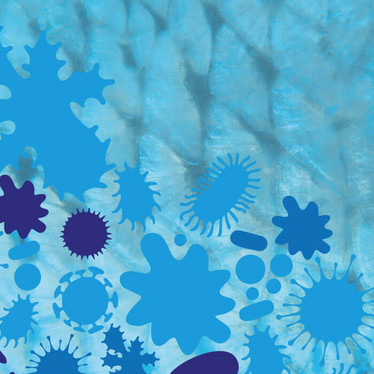
Solutions In… the Skin-Biome
Harnessing the power of the microbiome, SkinBioTherapeutics is proving that skin-deep problems are resolvable
We have all heard of probiotics. These defenders of the gut environment have been shown to assist in healing wounds, preventing infection and strengthening our gut barrier. But the role of these “good” bacteria doesn’t begin and end in our bowels; microbes carry out equally important activities on the surface of skin. Catherine O’Neill, Professor of Translational Dermatology at the University of Manchester, began investigating structures in the skin that make it an efficient barrier against the body's external environment 15 years ago. Now, at the helm of SkinBioTherapeutics, O’Neill and her team are exploring the potential of probiotic bacteria in applications for skin health and disease.

What is the story behind SkinBioTherapeutics?
As an academic, I had a historic interest in the role of the gut barrier and its ability to prevent anything toxic or infectious from getting across the gut and into the bloodstream. Years of research has proven the integral role of bacteria in strengthening the barrier function in the gut and, given this link, it wasn’t a huge leap to question whether the skin microbiome might also participate in the skin’s barrier function!
My team and I were able to identify a particular bacterium that had positive effects in skin models at my lab at the University of Manchester. SkinBioTherapeutics was then set up to develop this bacterium, Skinbiotix, as a therapeutic for skin in health and disease.
When we began we could only make a tiny amount of Skinbiotix in a test tube in my lab. We’ve now shown that we can scale it up and manufacture it with a third party and we’ve formulated it into a cream.
What applications does Skinbiotix have?
Skinbiotix is a lysate (extract) of a probiotic, which improves the barrier function, accelerates wound healing and also prevents infection from Staphylococcus aureus, the most prevalent pathogen that affects skin. Our Skinbiotix® technology does not use live bacteria due to potential safety concerns and it is easier to formulate an extract.
Our therapeutic is being developed for the treatment and prevention of eczema, which affects 20 percent of the pediatric population in the West. Due to its weak barrier, eczematous skin can be frequently infected with S.aureus, so our technology could be very effective in the treatment of this condition.
Earlier this year, we were able to demonstrate Skinbiotix' safety and tolerance in a large patient group. The results of this human study will allow us to begin to optimize our technology and develop formulations better suited to different patient demographics. There are also other skin conditions that our technology could potentially be used for, such as cosmetic applications and as an anti-infective.
The pharma industry is now beginning to exploit the gut microbiome for novel therapeutics. Can the same be said when it comes to the skin-biome?
Our current understanding of the skin-biome is about 30 years behind that of the gut, but the work in this area is definitely growing. We’re only at the beginning of our journey with commensal communities of the skin and the opportunities to help patients living with a variety of skin conditions are waiting to be discovered!
What are your aspirations for the company?
The human microbiome is a factory that constantly makes many interesting chemicals, some of which could be beneficial for the skin or other areas of health and disease. My aspirations are to continue to develop microbiome-based technologies that have the potential to bring new therapeutics to patients.

After finishing my degree, I envisioned a career in science communications. However, life took an unexpected turn and I ended up teaching abroad. Though the experience was amazing and I learned a great deal from it, I jumped at the opportunity to work for Texere. I'm excited to see where this new journey takes me!



















